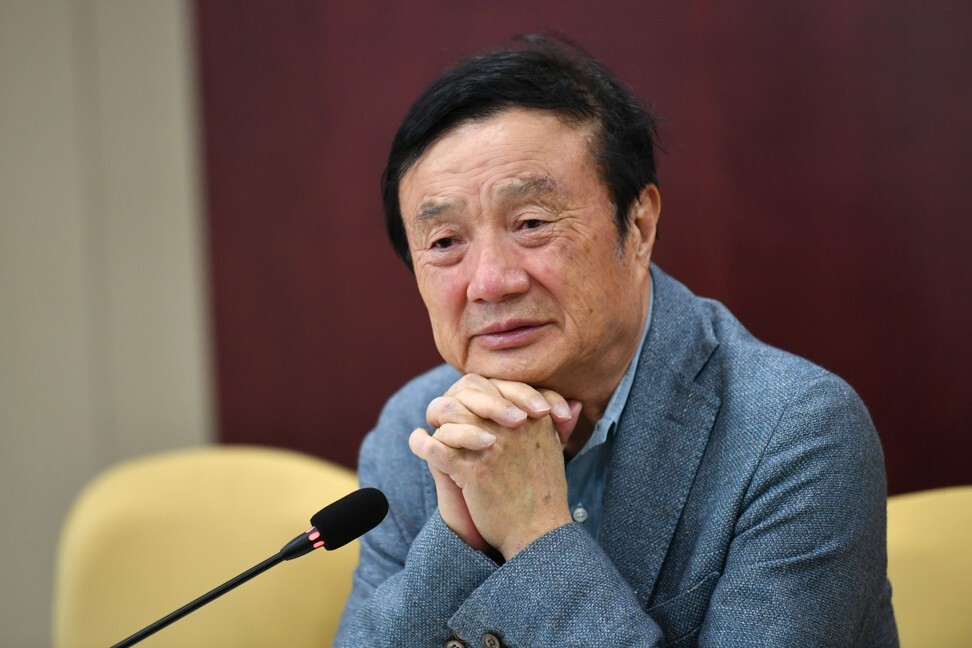
Huawei turns to AI pig farming as the Chinese tech giant explores new growth areas outside smartphones
- Huawei said it is launching an artificial intelligence pig farming project amid ongoing US sanctions that have hammered its smartphone business
- Other tech giants, including JD.com, NetEase, and Alibaba, have all sought to bring new tech to pig farming in China, home to half the world’s live hogs
Chinese tech giant Huawei Technologies Co launched an artificial intelligence pig farming project on Monday as the company pushes into new growth areas while its smartphone business struggles under continued US trade sanctions.
Duan Aijun, president of Huawei’s machine vision business, made the announcement on the microblogging site Weibo without elaborating.
Why Huawei isn’t giving up on smartphones just yet
The Shenzhen-based company is now moving into multiple new growth areas, including cloud services, smart vehicles and wearable devices, as well as seeking to upgrade traditional industries like coal mining and pig farming.
With half of the world’s live hogs, China has the world’s largest pig farming industry, which is quickly evolving from a series of small, backyard businesses into modernised, large-scale farming requiring hi-tech support. JD.com, NetEase, and Alibaba Group Holding, the owner of the South China Morning Post, have all sought to give China’s pig farming industry a technological upgrade.

Huawei founder and chief executive Ren Zhengfei also announced last week the launch of an intelligent mining innovation laboratory in Taiyuan, the capital of China’s northern coal hub of Shanxi province.
During a round-table meeting at the event, Ren said the company has kicked off a “self-reliance in production” programme, referred to as Nanniwan, under which the company is venturing into coal mining, iron and steel, and music, while expanding in categories in which the company already has consumer products such as televisions, computers, and tablets.
“We can still survive even without relying on phone sales,” Ren said, adding that it is very unlikely that the US will remove the company from the so-called entity list that bars US companies from working with the Chinese tech firm without approval.
Nanniwan is a symbol of self-reliance in China’s communist culture. In the early 1940s, an army controlled by the Communist Party turned a barren land in Nanniwan, in northwestern Shaanxi province, into an arable field to survive economic blockades imposed by Japan during World War II.
Huawei sharpens health care focus of its wearable devices
Huawei’s ambitions became more obvious as the company expanded the duties of Richard Yu Chengdong, head of the company’s consumer business group, to include cloud services and artificial intelligence (AI) last month. The management reshuffle could strengthen the firm’s moves into new growth markets.
The company also gave its wearables research and development a sharpened focus on health care, revealing three health research programmes last month for hypertension management, body temperature and coronary heart disease. The renewed focus could enable the company to catch up with Xiaomi, the world’s second-biggest wearables vendor behind Apple.
Smart vehicles is another category on Huawei’s radar. The tech giant made its debut in the industry in April 2019, when it unveiled a plan to become an infrastructure supplier. A month later, the company officially established a new business unit dedicated to smart vehicle solutions.
In November, the company merged its smart vehicle business into its consumer segment under the leadership of Yu, the architect of Huawei’s rise as a global smartphone leader over the past two decades.

